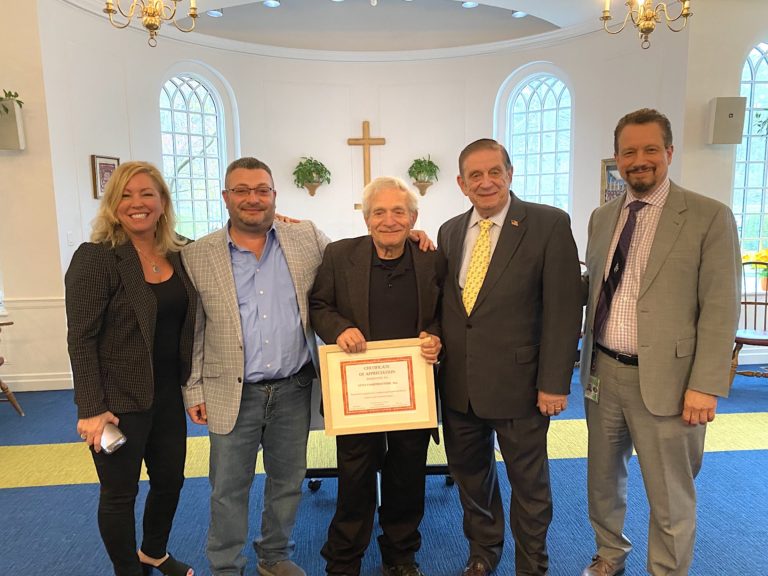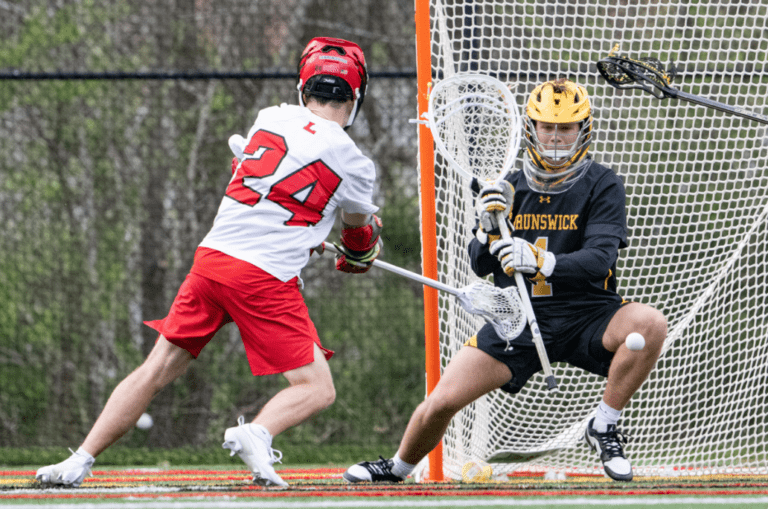By Richard Kaufman
Racial injustice and policing in America have been highlighted in recent weeks, as protesters and demonstrators across the country and the world have taken to the streets demanding change.
Last week, the Greenwich Police Department released an 11 page document detailing how they police and engage with the community in thoughtful, safe and effective ways. GPD Chief, James Heavey, also wrote a letter to the community.
“At its core, the Greenwich Police Department is focused on protecting life and property, preserving the rights of every person, ensuring public peace and contributing to improving the quality of life for the benefit of the entire community. We share with the Nation feelings of outrage at brutal acts committed by police officers. These acts are wholly incompatible with our vision of Greenwich Police as guardians and protectors of the public,” the letter read in part.
The GPD has long been known as one of the top agencies in the state. Over the last two years, the department has worked towards achieving state accreditation, which was finally granted last November. Accreditation demonstrates an agency’s voluntary compliance with contemporary, international standards of excellence for the delivery of policing services.
“We became only the 39th out of 163 municipalities in the state of Connecticut to pass through this gauntlet of accreditation, which required us to demonstrate by both word and action that we follow 233 best practices, and those included everything from dealing with animal complaints, to a homicide, to domestic violence,” Heavey said earlier this week, adding that the Department will look to achieve tier 2 status. “Many of the things we were doing were right, but they weren’t always codified in a uniform policy.”
Community engagement is vital to any police department, and the GPD stays involved with its residents in various ways.
The Department has a dedicated Community Impact Section which consists of officers who are focused on addressing hyper-local issues and who periodically meet with community groups. They also coordinate the Community and Police Partnership Program (CAPP) which fosters collaboration between the police and community.
The Citizens Police Academy, for adults and youth, allows the public to gain a better understanding of how the department operates, and the Coffee With a Cop Program lets residents interact and chat with officers in a relaxed environment.
The Department helps residents who are struggling with mental health, as well as opioid addiction, through partnerships with the local office of the Connecticut Department of Mental Health and Addiction Services, and Greenwich’s Department of Human Services.
Heavey believes it’s important to instill in children that the police are the good guys. He detailed a common scenario that he and many officers have found themselves in.
“You’re in a deli and you’re waiting to get your lunch, and a mom or a dad will say to their child, ‘You better be good or that policeman will arrest you,'” Heavey said.
“What our officers will often say is, ‘Please don’t make us the boogeyman or the person who is going to come and do bad things. We’re going to be the helpers.’ We try to reinforce the fact that we’re not so much warriors as we are guardians,” Heavey continued. “We’re protecting people versus trying to be a force against people. Some of that involves the training we do in human relations.”
One aspect of community engagement Heavey would like to see an improvement in is that currently 10 percent of GPD officers live in Greenwich.
“That’s unfortunate because then you can have even greater community engagement,” he said. “I’m fortunate to live in town, and I can be active in the community as a volunteer outside of the police agency, so people don’t know me as just the Chief.”
The topic of racial profiling is covered in the 11 page document released by the GPD.
According to GPD’s policy, “Targeting groups or individuals for law enforcement action, including motor vehicle stops, based solely on illegal profiling is unethical and illegal.”
According to an annual study released in May from The Connecticut Racial Profiling Prohibition Project, the Greenwich Police Department did not exhibit a statistically significant racial or ethnic disparity in its traffic stop statistics.
Heavey said that there are some challenges with looking at that data.
“One of the challenges with some of the data is there’s a veil of darkness. Many of the motor vehicle stops are made at night where you might not be able to identify the race of the person,” Heavey remarked. “The other challenge for us in Greenwich is that when you look at the dynamics of our surrounding communities and the fact that we have I-95 and the Merritt Parkway and 684, that we’re very transient. If our motor vehicle stops don’t always reflect the racial breakdown of the community, it’s often because the total might not be from people who are from town.”
“Use of Force” is heavily covered in the GPD document on policing. The GPD’s policy “recognizes and respects the value of each and every life.” It requires that officers “shall use only that force that is necessary to effectively bring an individual under control, while protecting the life of oneself or a third party.”
Heavey said police headquarters has a room specially made for defensive tactics and training, and they use in-house instructors for all types of scenarios.
Another aspect in making the department less vulnerable to potential complaints about use of force, is that there are educational requirements for officers that exceeds the minimum standards of many other departments.
“To become a Greenwich Police officer, you have to have an associate’s degree, and to be promoted to a certain branch you need to have a bachelor’s degree,” Heavey said. “The International Association of Chiefs of Police has kind of identified that as a strong point in preventing excessive force. It may make it harder for us to recruit, but it gives us a leg up when it comes to other agencies.”
Building the best possible police force is the foundation upon which the department stands, and it allows officers to do their jobs in a safe and effective manner.
The hiring process includes extensive background investigations with criminal history checks, multiple levels of interviews, polygraph exams, and psychological examinations. Officers receive almost nine months of training and are initially on an 18-month probationary period. Those who fail to meet standards have their employment terminated.
The GPD tries to recruit from top schools that have criminal justice majors and diverse student populations. Currently, the department has 10 percent women, and about 16 percent minorities.
“That doesn’t sound like a lot, but it’s sometimes more diverse than our community is currently. That’s a certain advantage to us because it gives us the ability to address all different kinds of populations,” Heavey said.
Each officer receives training on employment topics, including sexual harassment, equal opportunity and other critical issues.
The department has also partnered with outside agencies to assist in human relations training.
Heavey called the recent events involving police brutality “terrible”, and he recalled the powerful Martin Luther King Jr. quote, “Injustice anywhere is a threat to justice everywhere.”
Heavey hopes people understand that the actions of a few do not represent the majority of officers, especially the Greenwich Police Department.
“The way in which a community becomes safe, is that the community and the police have to work together,” he said.
Heavey said the department is thinking of conducting a Town Hall type event with First Selectman Fred Camillo in the future, so residents can have their questions and concerns about policing in Greenwich answered.
Nothing is scheduled as of yet, but Heavey said it would most likely be held online via Zoom due to crowd restrictions from the COVID-19 pandemic.
Going forward, Heavey expects there to be some legislation regarding body cameras for officers, which is something the GPD has been asking for.
“That’s going to be another topic of discussion for the town administration to consider adding that as a capital improvement. If you look at what people are looking for in the transparency of the department, that’s one of the few things we don’t have. Everything else we pretty much meet or exceed the standards,” he said.
For more information on Greenwich policing, check out their 11-page document at greenwichct.gov/DocumentCenter/View/16243.




